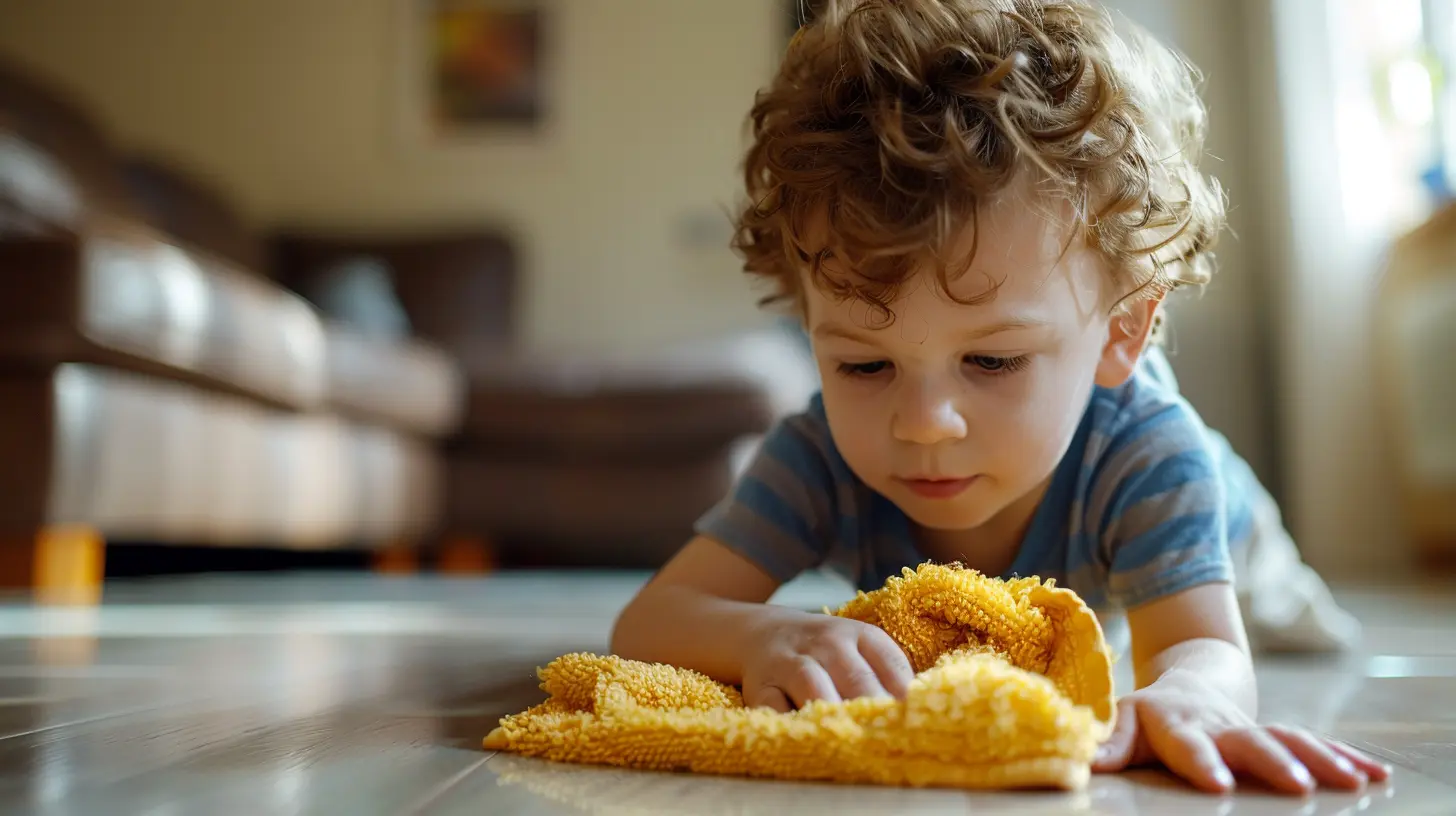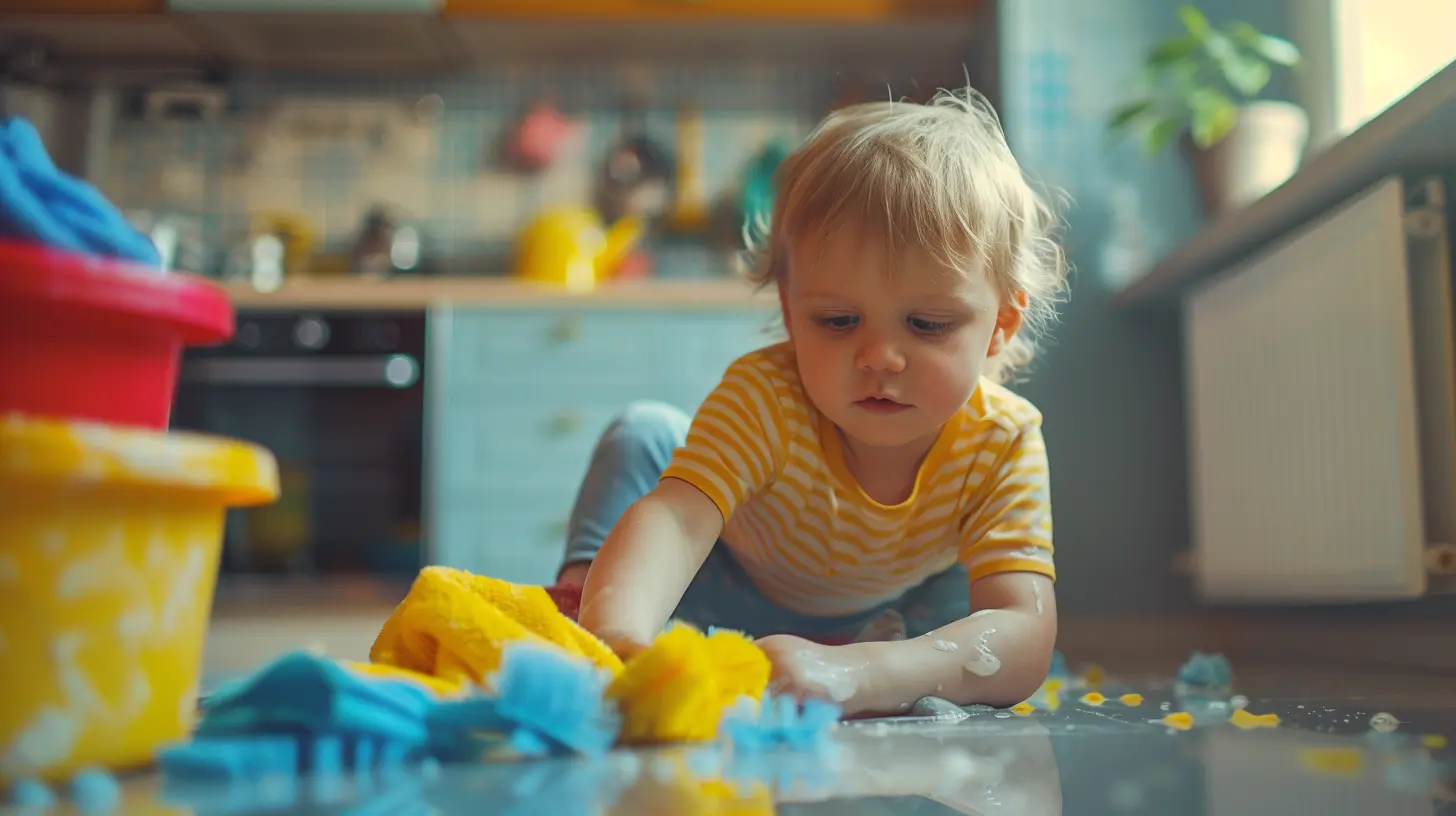Growing Responsibility: Transitioning from Small to Big Chores
25 June 2025
Let’s be honest—getting kids to do chores can feel like herding cats. One minute, they’re all in with enthusiasm, and the next, they’ve vanished into thin air. But here’s the thing: teaching responsibility through chores isn’t just about cleaning up messes. It’s about preparing your child for real life, one manageable task at a time.
In this article, we’ll dive deep into the journey of growing responsibility, showing you how to help your child transition from small to big chores. We’ll talk about what it really means to give kids responsibility, how to build it gradually, and why it’s actually one of the greatest gifts you can give them.
Why Chores Matter More Than You Think
You might be thinking, “They’re just chores. What’s the big deal?” But chores aren’t just about scrubbing toilets or folding laundry. They’re bite-sized life lessons disguised as everyday tasks.Chores teach:
- Accountability – When kids know they’re responsible for something, they start to own their role in the family dynamic.
- Time management – Juggling homework, soccer practice, and dish duty builds prioritization.
- Work ethic – Completing a task from start to finish reinforces persistence.
- Teamwork – They learn that being part of a household means pitching in.
Giving kids chores helps them develop a sense of contribution, which actually boosts their self-esteem. It’s empowering to know you’re needed.
Start Small: Building Foundations Young
Giving your five-year-old the vacuum cleaner probably isn’t the best place to start. Like anything in life, responsibility grows in layers. Start small while they’re young.Age-Appropriate Chores for Young Kids
Here are a few little tasks that can plant the seed of responsibility:- Putting toys back in the bin
- Feeding the dog
- Wiping up spills with a towel
- Putting dirty clothes in the laundry basket
- Watering plants with a small cup
These tasks may seem tiny, but they do something big: they introduce the concept of ownership. When a three-year-old puts her dolls away after playtime, she’s learning that messes don’t clean themselves. It might take her five extra minutes, but to her, it’s a big win.
Make It a Game
At this age, everything is an adventure. Turn chores into mini-missions. Can your child race to beat the clock while putting blocks away? Can they become a “plant doctor” and care for flowers? The more playful, the more engaged they’ll be.
The Transition: When and How to Level Up
So, when do you know it’s time to move from tiny tasks to real-deal responsibilities? There’s no perfect age—it’s more about readiness than a number. But usually, somewhere between ages 7 and 10, kids are ready for more significant roles.Signs They’re Ready for Bigger Chores
- They complete small tasks without reminders- They show interest in your chores ("Can I help make dinner?")
- They ask for independence
- They start managing their school responsibilities better
Gradually Building Up
Jumping from feeding the cat to doing laundry alone isn’t a fair leap. Think of chore growth like leveling up in a video game—each level builds on the last.Here’s a progression you might try:
1. Co-chore: You do the chore together. (e.g., folding towels side by side)
2. Guided chore: They do it while you watch and coach.
3. Independent chore: They do it solo, and you check the result.
4. Self-managed chore: They do it regularly without being told.
By guiding them through each stage, you’re helping build confidence and competence—not frustration.
Bigger Chores, Bigger Lessons
As kids take on more demanding tasks, they start stepping into the shoes of adulthood, piece by piece. Let’s look at some "bigger chores" and what each teaches your child.1. Doing Laundry
Wouldn't it be dreamy if your 12-year-old could wash, dry, and fold their own clothes? This chore teaches:- Planning (you can’t wear your favorite hoodie if it’s in the hamper)
- Attention to detail (separate colors and whites, anyone?)
- Independence (not asking Mom where socks are)
Start by letting them sort laundry or press the washing machine buttons. Eventually, they’ll run the whole process.
2. Preparing Simple Meals
Cooking is more than just following a recipe. It teaches patience, attention, and even math. Let your child:- Make their own sandwich
- Scramble eggs
- Measure ingredients for pancakes
Once they master the basics, they can prep simple meals for the family. Talk about pride!
3. Mowing the Lawn or Outdoor Work
This one's a rite of passage for many teens. It builds a strong work ethic—especially on hot summer days.Outdoor chores encourage:
- Responsibility towards shared property
- Physical stamina
- Pride in “a job well done”
Just make sure they’re trained and safe when using machines. Safety always comes first.
4. Budgeting and Shopping
Have older tweens or teens help with grocery shopping or setting a small budget. Let them:- Make a list
- Compare prices
- Handle payment at checkout
Money management is a core life skill, and it starts here.
Add Meaning to the Chores
If chores feel like punishments or obligations, kids are going to dread them. But if you infuse them with meaning and connection, you’ll have a better shot at long-term success.Talk About the “Why”
Don’t just say, “Do your chores.” Explain their importance.- “We all contribute to make our home feel calm and clean.”
- “When you clean up your space, it’s easier to focus and relax.”
- “Helping with dinner gives me a chance to rest, and I truly appreciate that.”
When kids understand why, they’re more likely to take ownership.
Let Them Choose
Give them a voice. Maybe ask:- “Would you rather vacuum or clean the bathroom?”
- “Do you want to walk the dog before or after dinner?”
Offering control makes it feel less like a demand and more like collaboration.
The Role of Patience
Here’s a spoiler: They’re going to mess up. The dishes won’t sparkle. The towels won’t be folded right. And yes, there will be grumbling.But guess what? That’s okay.
Mistakes—spilled milk, broken dishes, skipped corners—are part of the learning curve. Don’t expect perfection. Expect progress.
Praise efforts, not just outcomes. Instead of, “Why didn’t you clean under the sink?” try, “I saw how much time you put into wiping everything down. Great job!”
Chores as a Bridge to Adulthood
Every big responsibility started with a small one.Teaching your child to clean their room builds the confidence to organize their college dorm. Showing them how to fix a meal gives them the skills to take care of themselves when they move out. Helping them track a grocery budget introduces the financial awareness they’ll use forever.
Little by little, through everyday tasks, we’re raising capable, confident, compassionate humans.
And isn’t that what parenting is all about?
Tips to Keep Chores on Track
Let’s wrap with a few practical tips:1. Create a Chore Chart
Visual cues work wonders. A simple chart with names and tasks keeps things organized and clear. Add stickers or checkmarks to make it fun, especially for younger kids.2. Set a Weekly Check-In
Instead of nagging daily, set a weekly “chore chat.” Go over what was done well and what could improve. Keep it low-pressure.3. Rotate Tasks
Stuck doing the same thing week after week gets boring. Rotate chores so everyone gets a well-rounded set of responsibilities.4. Reward Wisely
You don’t have to pay them for every task. But occasional rewards—like choosing dinner or extra screen time—can be great motivators. Just be clear: chores are part of being in the family, not a transaction.Final Thoughts
Transitioning from small to big chores is a journey—for both kids and parents. It’s not always smooth or fast, but it’s deeply rewarding. You’re not just raising a helper around the house; you’re cultivating a young adult who feels empowered, capable, and ready to take on the world.So the next time you're tempted to just do the chore yourself because “it’s quicker,” pause. Let them try. Let them stumble. Let them grow.
Because responsibility isn’t taught in lectures—it’s learned in action, broom in hand.
all images in this post were generated using AI tools
Category:
Kids And ChoresAuthor:

Maya Underwood
Discussion
rate this article
2 comments
Xylo Baker
I love this concept of gradually increasing chores! How do you think kids' attitudes change as they take on bigger responsibilities?
November 15, 2025 at 6:03 AM

Maya Underwood
As kids take on bigger responsibilities, they often feel a sense of accomplishment and pride, which can boost their self-esteem and foster a positive attitude towards chores. Gradually increasing responsibilities helps them develop a growth mindset and reinforces the value of contributing to the household.
Mallory Wilkins
This article beautifully captures the journey of fostering responsibility in children. It's wonderful to see how small chores can empower our little ones and build their confidence. Transitioning to bigger tasks is a vital step, and your insights are truly invaluable for parents. Thank you!
June 25, 2025 at 4:29 AM

Maya Underwood
Thank you for your kind words! I'm glad you found the insights helpful for fostering responsibility in children.


